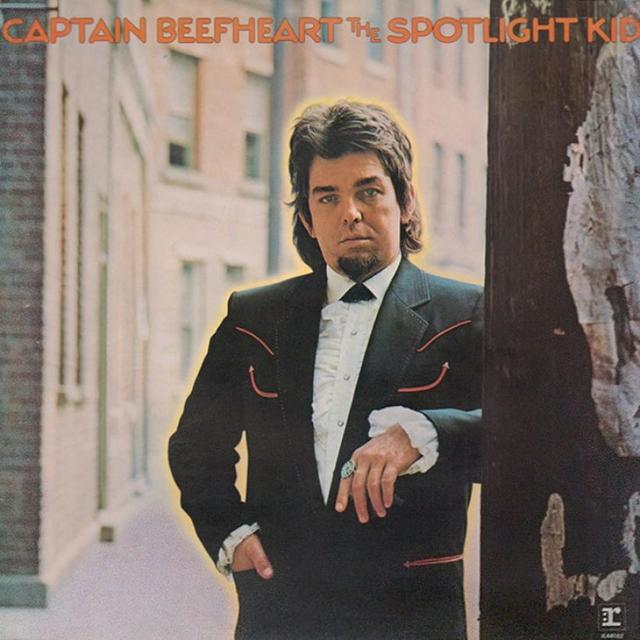January 1972: Captain Beefheart Releases THE SPOTLIGHT KID

Captain Beefheart was ready for a downshift.
When it came time to create his sixth studio effort, The Spotlight Kid, Captain Beefheart (born Don Van Vliet) began moving away from the frantic tempos of his earlier works towards slower and more deliberate material. The thought process was that the change would result in more commercial success, something that been eluding Beefheart and the Magic Band. It had gotten to the point that the group was surviving on social welfare and financial assistance from their families.
What Captain Beefheart and the Magic Band did have, however, was critical appeal. Their singular brand of psychedelic freak-out blues was a hit with taste-makers, including influential music critic, Lester Bangs. The writer had become a champion of the group, penning complimentary reviews of Captain Beefheart records in the pages of Rolling Stone magazine.
While making the album that would become The Spotlight Kid, Beefheart assembled his Magic Band into communal living situations in central California. It was a less than ideal scenario for the band members, as the Captain became increasingly hostile towards his musicians.
“Typical of cult leaders, Don had isolated the band by first moving them into a cabin compound in Ben Lomond, near Santa Cruz, and then a horse compound slightly north of Eureka, near Trinidad," recalled drummer John French, who'd been renamed "Drumbo" by Captain Beefheart. "I hated it there. It was cold and damp. We had rats in the house. There was little food and nowhere to go. I was once again a prisoner. It took me years to be able to listen to The Spotlight Kid, as all I could hear was Don either railing on about how the band was holding him back or blaming some individual for the same."
The group recorded a plethora of material, including a clutch of songs that would eventually be finalized and realized on future releases. Pulling out 10 tunes from the sessions, Beefheart assembled The Spotlight Kid. It would be the first and only release credited to Captain Beefheart alone, although the Magic Band appears on the recordings.
Released at the dawn of 1972, critics were again kind to the latest record from Captain Beefheart. Fans concurred, with the album selling enough copies to be their first to hit the Billboard 200 chart. Featuring standout tracks including "Alice in Blunderland," and the outfit's sole attempt at a Christmas song ("There Ain't No Santa Claus on the Evenin' Stage"), The Spotlight Kid went on to peak at #131, making it the highest-charting LP of the group's history.
The arduous circumstances behind the album's creation, however, left a pall on Beefheart's band members: "We were just emotionally beat to death by his particular environment," revealed guitarist Bill Harkleroad (AKA Zoot Horn Rollo, per Captain Beefheart). "We were playing really anemically and it sucks because of that."
"The band wasn't into what I wanted to do at the time," Beefheart countered during an interview with NME in 1973. "They failed miserably on The Spotlight Kid."
Coming to the record's defenses, once again, was writer Lester Bangs.
"There comes a time in the career of every pop musician who also happens to be a serious artist when he realizes the need for a balance between the most intensely personal type of statement and music of mass appeal," Bangs wrote in Rolling Stone. "With this album, Captain Beefheart has struck that balance with total success, and I wouldn’t be surprised if he were a major star a year from now. Though you may have been a great shadow hovering over our music for half a decade now, Don, it can be said that in 1972 you’ve really arrived."